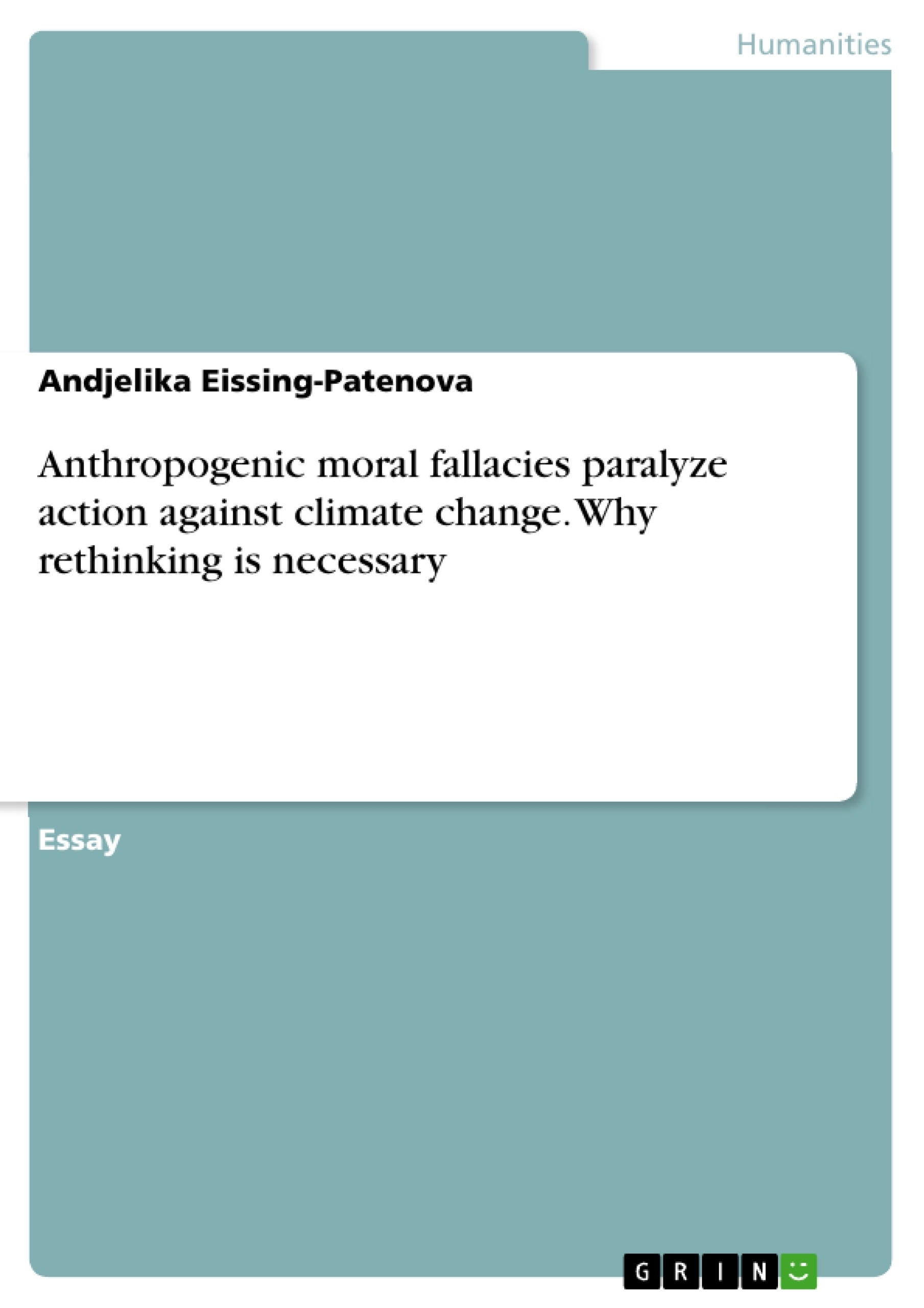Inaction against the climate change problem can (inter alia) be traced to moral fallacies, for they distract us from realizing our moral duties and responsibilities and so hinder us to take action. It is not sufficient to ask for the obviously apparent reasons for natural catastrophes and all the other negative effects climate change entails, i.e. greenhouse gas emissions. Instead, we have to think a step further and ask for the causes of our pollutive behavior, which are, as claimed in the paper, for instance based on false assumptions about intergenerational justice and the value of progress in our modern consumer society. Thus, becoming able to act requires a rethinking of our morality. To overcome the here discussed two moral fallacies, i.e. the non-identity problem and the overestimation of progress, would mean a large step towards saving the planet and providing our successors with living conditions that are at least of the same quality as ours.
1. Content
1. INTRODUCTION
1.1. KEY ARGUMENT
1.2. ESSAY OUTLINES
1.3. NOTIONS AND GENERAL REMARKS
2. ANTHROPOGENIC MORAL FALLACIES AS AN OBSTACLE TO TAKING ACTION AGAINST CLIMATE CHANGE
2.1. (P1) FALLACIES ABOUT THE NON-IDENTITY PROBLEM
2.2. (P2) OVERESTIMATION OF PROGRESS AND THE MODERN CONSUMER SOCIETY
REFERENCES



